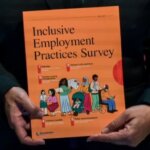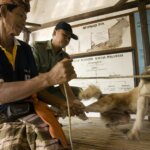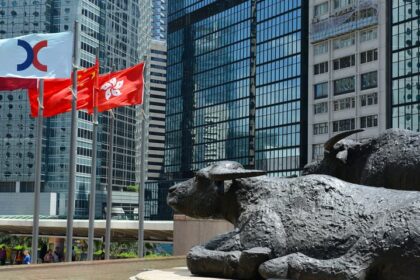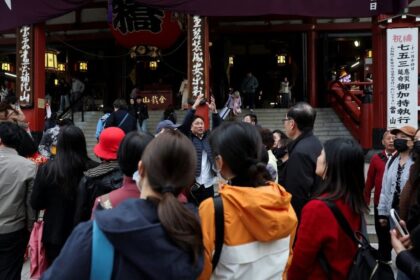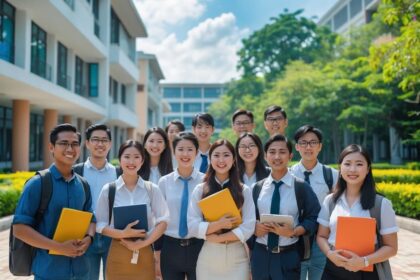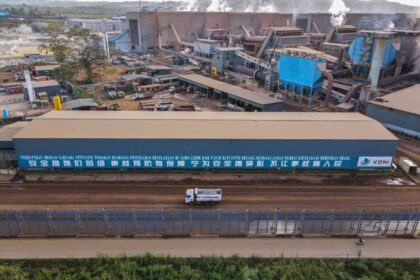Gen Z and the Remote Work Revolution in Singapore
The COVID-19 pandemic triggered a seismic shift in how work is structured and experienced across the globe. Nowhere has this transformation been more profound than in Singapore, where Generation Z—those born between 1997 and 2012—entered the workforce just as remote and hybrid work became the new norm. For this generation, flexibility, autonomy, and mental wellness are not just perks but baseline expectations that are fundamentally reshaping career choices, workplace culture, and even the definition of professional success.
- Gen Z and the Remote Work Revolution in Singapore
- Why Remote and Hybrid Work Became the Norm for Gen Z
- The Mental Health Imperative: Work-Life Balance and Burnout
- In-Person Work: Rediscovering the Value of the Office
- Flexible Work Arrangements: Priority or Perk?
- Gen Z vs. Millennials: A Generational Shift in Workplace Expectations
- The Rise of Bleisure and Global Work Trends
- Challenges and the Path Forward
- In Summary
As Singapore emerges from the pandemic, the legacy of remote work continues to influence Gen Z’s attitudes, aspirations, and demands in the workplace. This article explores how remote work has shaped Gen Z’s career approach in Singapore, the broader implications for employers, and what the future of work might look like as new guidelines and technologies further disrupt traditional norms.
Why Remote and Hybrid Work Became the Norm for Gen Z
When the pandemic struck in 2020, Singapore’s offices emptied almost overnight. For Gen Z, many of whom were starting their first jobs or internships, the experience of working from home was not a temporary measure but their introduction to professional life. Unlike older generations who had to adapt to remote work, Gen Z’s baseline expectation became flexibility—whether that meant working from home, hybrid arrangements, or even working from anywhere in the world.
According to a Universum survey, 73% of young talent in Singapore prefer remote over in-person work. Deloitte’s research echoes this, finding that 69% of Gen Zers in Singapore would seek new opportunities if their employer mandated full-time office attendance. This generational preference is not unique to Singapore but is particularly pronounced here, given the city-state’s rapid digitalization and openness to global trends.
However, the desire for remote work is not simply about convenience. For Gen Z, flexibility represents respect, trust, and autonomy. A CNA survey found that 53% of Gen Z respondents cited flexible work arrangements as their top reason for staying in a job, but what they truly value is what flexibility symbolizes: an employer’s willingness to respect boundaries and trust employees to manage their own time.
Remote Work as a Tool for Self-Exploration
For Gen Z, career changes and experimentation are seen as self-exploration rather than a sign of instability. The stigma once attached to job-hopping has faded, replaced by a narrative that values personal growth and alignment with one’s values. This shift is partly a result of the autonomy that remote work provides, allowing young professionals to explore different roles, industries, and even locations without being tied to a physical office.
The Mental Health Imperative: Work-Life Balance and Burnout
One of the most significant impacts of remote work for Gen Z in Singapore has been the prioritization of mental health and work-life balance. The relentless “hustle culture” that once defined Singapore’s professional landscape is being challenged by a generation unwilling to sacrifice well-being for career advancement.
Research by Impossible Psychological Services highlights that 68% of Gen Z employees in Singapore report feeling burned out, the highest among all age groups. Similarly, the 2024 Wellness at Work Report by Employment Hero found that 61% of Singaporean employees feel burnt out, with Gen Z bearing the brunt. The blurring of boundaries between work and personal life—exacerbated by digitalization and remote work—has made it difficult for many to disengage from work, leading to chronic stress and fatigue.
Gen Z’s response has been to set clear boundaries, prioritize self-care, and seek out employers who offer mental health support and flexible working conditions. In fact, 86% of Gen Zs in Singapore consider mental health support and policies very important when evaluating potential employers. This generational shift is prompting organizations to rethink their approach to employee well-being, with many now offering mental health days, wellness programs, and flexible work arrangements to attract and retain young talent.
As one young professional, Corrine Chong, shared,
“Regularly exercising at least once a week to kick in those endorphins and stay physically healthy! I also like to spend quality time with my family and friends over the weekends to recharge.”
Her emphasis on self-care and balance reflects a broader trend among Gen Z workers in Singapore.
In-Person Work: Rediscovering the Value of the Office
Contrary to the stereotype of Gen Z as digital natives who shun the office, many young workers in Singapore are rediscovering the value of in-person interactions. While remote work offers autonomy, it can also hinder informal learning, mentorship, and the development of workplace social skills—elements crucial for career growth and a sense of belonging.
Face-to-face interactions help Gen Z employees adapt, learn, and feel at ease with colleagues. A Randstad poll found that 67% of Gen Z respondents in Singapore would consider resigning if they didn’t feel a sense of belonging at work. Office camaraderie, peer learning, and support systems are often valued more than the logistical benefits of remote work.
Some Gen Z workers have expressed that remote work made it challenging to learn job skills and workplace dynamics, especially during internships or early career roles. Being in the office allows for immediate feedback, observation of workplace norms, and the building of relationships with supervisors and colleagues—factors that can significantly impact career development.
Without visibility and sponsorship from senior colleagues, Gen Z workers may stagnate and question their value. Building social capital and learning company culture often require face-to-face experience, which cannot be fully replicated through digital channels.
Flexible Work Arrangements: Priority or Perk?
As Singapore’s economy recovers, the pendulum is swinging back toward in-office work. According to The Straits Times, 61% of workers now work from the office, up 7 percentage points year-on-year, while hybrid and remote work have declined. New government guidelines, set to take effect in December, require employers to “fairly consider” formal requests for flexible work arrangements, including telecommuting, staggered hours, and job sharing. However, requests can still be rejected for business reasons, and some companies are increasing in-office days due to business needs and the importance of in-person collaboration, especially for junior staff.
Despite this shift, the demand for flexible work remains strong. Nearly nine out of ten workers in Singapore say that benefits like flexible work arrangements, comprehensive health insurance, and mental wellness support are crucial for them to remain with their current employer. Companies that offer such benefits are more likely to retain talent and maintain a motivated workforce.
Experts note that the success of flexible work depends on cultural change and a willingness from employers to move beyond traditional notions of productivity and commitment. Performance measurement and workplace culture must evolve to support flexible work, with a focus on outcomes rather than hours spent in the office.
Transparency and Trust in Job Searches
Finding remote or flexible roles is not always straightforward. Many job platforms still prioritize location-based searches, making it difficult for jobseekers to identify truly remote opportunities. There is also a lack of transparency in job listings, with some employers misrepresenting roles as remote to attract talent. Improving job search tools to clearly communicate expectations for remote work, travel, and time-zone availability would help young Singaporeans make more informed career decisions and access global opportunities.
Gen Z vs. Millennials: A Generational Shift in Workplace Expectations
While both Gen Z and Millennials value work-life balance and flexible work arrangements, there are notable differences in their approach to work. Gen Z tends to be more self-reliant in problem-solving, a trait attributed to their entry into the workforce during the rise of remote work. Millennials, on the other hand, value teamwork and thrive in collaborative environments.
Gen Z employees also place greater emphasis on ethical business practices and social responsibility. According to the Bentley-Gallup Force for Good Study, 71% of respondents aged 18 to 29 would consider leaving their employer for an organization with a positive social impact. This focus on values and purpose is reshaping what it means to build a meaningful career in Singapore.
The Rise of Bleisure and Global Work Trends
The flexibility afforded by remote work has given rise to new trends such as “bleisure” travel—a blend of business and leisure. Singapore is at the forefront of this movement, with young professionals extending work trips for leisure, exploring new destinations, and prioritizing experiences alongside career advancement. The bleisure travel market is projected to grow rapidly, fueled by Millennials and Gen Z who value personalization, work-life balance, and the ability to work from anywhere.
Technological advancements, particularly the adoption of generative AI (GenAI), are also transforming the workplace. In Singapore, 79% of employees now use GenAI as part of their work, driving productivity and enabling a stronger focus on high-value tasks. However, as fully remote work declines, hybrid arrangements remain a staple, with 76% of employers offering options to work remotely two to four days a week. Flexibility in work location remains a top priority for employees, second only to salary considerations.
Challenges and the Path Forward
Despite the many benefits of remote and flexible work, challenges remain. The blurring of boundaries between work and personal life can lead to difficulty disengaging from work, increased stress, and burnout. Not all employers are equipped to provide the necessary support, with only 45% of employees stating that their employer provides access to confidential counseling.
There is also a risk that Gen Z workers may miss out on informal learning, mentorship, and the development of workplace social skills if in-person opportunities are limited. Building social capital, understanding company culture, and gaining visibility with senior colleagues often require face-to-face interactions.
To address these challenges, organizations must design hybrid work environments that foster human connection, mentorship, and opportunities for informal learning. This includes cross-team chats, structured mentoring programs, and regular in-person gatherings to build a sense of community and belonging.
In Summary
- Gen Z in Singapore entered the workforce during the pandemic, making remote and hybrid work their baseline expectation.
- Flexibility, autonomy, and mental wellness are top priorities for Gen Z, influencing their career choices and expectations of employers.
- Burnout and stress are significant challenges, with Gen Z reporting the highest rates among all age groups.
- While remote work offers autonomy, in-person interactions remain crucial for learning, mentorship, and building a sense of belonging.
- Flexible work arrangements are highly valued, but the success of such models depends on cultural change and trust between employers and employees.
- Gen Z’s approach reflects a broader shift away from traditional “hustle culture” toward a more balanced, values-driven career path.
- Employers who prioritize flexibility, mental health support, and meaningful workplace connections will be best positioned to attract and retain Gen Z talent in Singapore’s evolving workforce.



